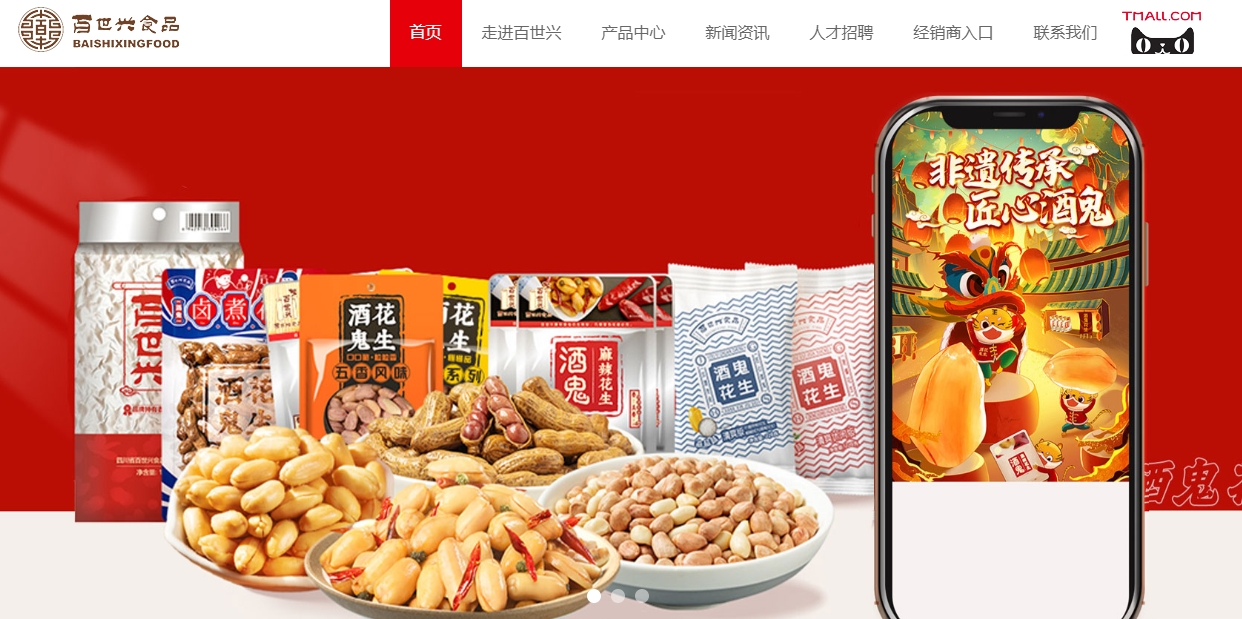Two "Alcohol Ghosts" Meet: A Multi-Year Trademark Infringement Case Finally Comes to an End!
Peanuts and alcohol are a match made in heaven. Peanuts are often enjoyed with alcohol, and this combination has long been a "perfect pair" on dining tables. However, when trademarks that are identical and both contain the term "Alcohol Ghost" meet—one for peanuts and the other for liquor—a multi-year trademark infringement case ensued.
The "Alcohol Ghost" peanut trademark is held by Sichuan BaiShiXing Food Industry Co., Ltd. According to records from the Guangzhou SaiLiXin Litigation Database, the company was established in 2002 and primarily deals in snacks such as peanuts and fungi. The "Alcohol Ghost and Design" trademark was registered in August 2015 for use on processed peanuts, refined nut kernels, and other goods in Class 29.

The company that became entangled in this dispute and triggered years of litigation is Alcohol Ghost Liquor Co., Ltd. This company evolved from the first workshop distillery in Xiangxi Prefecture, Jishou Distillery, which was established in 1956. It produces and sells multiple product lines, including "Alcohol Ghost" and "Xiangquan." In 1996, the company filed a registration application for the trademark "Alcohol Ghost JIU GUI and Design" (No. 1157000), which was registered in 1998 for use on alcoholic beverages in Class 33.
First Litigation
In 2015, Alcohol Ghost Liquor Co., Ltd. filed an invalidation request with the former Trademark Review and Adjudication Board. It claimed that BaiShiXing's "Alcohol Ghost" trademark was an imitation of its well-known trademark and was similar to its "Alcohol Ghost" and "Alcohol Ghost" trademarks when used on the same or similar goods. It also argued that the contested trademark's application and registration were made in bad faith, and that the trademark was deceptive, likely to cause the public to misrecognize the quality, characteristics, or origin of the goods.
BaiShiXing Company argued that its "Alcohol Ghost" trademark had gained considerable fame and influence through its long-term use and had formed a one-to-one correspondence with its company. It was not similar to Alcohol Ghost Liquor's "Alcohol Ghost" and "Alcohol Ghost" trademarks when used on the same or similar goods.
After reviewing the case, the Trademark Review and Adjudication Board concluded that although Alcohol Ghost Liquor's "Alcohol Ghost" trademark was well-known, it did not reach the level of being a famous trademark. The contested trademark had also gained some fame through BaiShiXing's long-term use and would not cause the public to misrecognize the source of the goods. The evidence provided by Alcohol Ghost Liquor did not prove that the contested trademark's application and registration violated the relevant provisions of the Trademark Law. Therefore, the board ruled to maintain the contested trademark.
Dissatisfied with the ruling, Alcohol Ghost Liquor Co., Ltd. filed an administrative lawsuit with the Beijing Intellectual Property Court.
Second Litigation
The Beijing Intellectual Property Court ruled that the plaintiff's evidence showed that the "Alcohol Ghost" trademark had a high level of fame in the liquor category, while the defendant's evidence also proved that its "Alcohol Ghost" trademark had considerable fame in processed peanuts. When a well-known trademark seeks cross-category protection, it is necessary to consider whether the contested trademark's registration would mislead the public and potentially harm the interests of Alcohol Ghost Liquor.
Considering that although the two trademarks are identical in the term "Alcohol Ghost," they differ in design style, font, and overall appearance, and the two companies operate in different industries, the coexistence of the two trademarks in the market would not lead to misrecognition by the public. Therefore, the court ruled that the defendant's trademark did not imitate the plaintiff's trademark and did not support the other claims made by Alcohol Ghost Liquor.
Alcohol Ghost Liquor Co., Ltd. appealed the first-instance judgment to the Beijing Higher People's Court.
Third Litigation
In this appeal, Alcohol Ghost Liquor argued that most of the evidence submitted by the defendant proved the fame of the "BaiShiXing" trademark, not the "Alcohol Ghost" trademark. Therefore, it was insufficient to prove that the "Alcohol Ghost" trademark had gained considerable fame through years of use. The company's "Alcohol Ghost" trademark was famous in the category of liquor (alcoholic beverages), and its use by the defendant in the peanut processing industry could easily lead the public to mistakenly believe that there was a specific connection with Alcohol Ghost Liquor, thereby weakening the distinctiveness of the cited famous trademark.
The Beijing Higher People's Court ruled that since both parties could prove that their respective trademarks had considerable fame and had established certain market orders, the plaintiff failed to provide evidence showing that its liquor products had suffered or were likely to suffer actual harm due to the defendant's trademark registration or use. Therefore, the court dismissed Alcohol Ghost Liquor's appeal and upheld the first-instance judgment.
Conclusion
From these three litigations, it is evident that the key to this trademark case lies in the fame of the trademarks and whether any harm was caused as a result. Although Alcohol Ghost Liquor invoked the cross-category protection of its famous trademark, BaiShiXing also proved the distinctiveness of its trademark. Since Alcohol Ghost Liquor could not prove any harm, it did not receive court support.
In this case, if a professional market survey had been conducted, centered on consumers, to produce a genuine conclusion report proving whether the two trademarks caused confusion or whether market survey data could prove harm to interests, the outcome might have been different.

